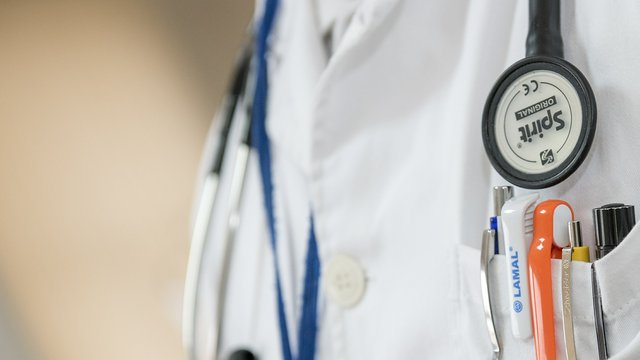Scottish doctors to prescribe cannabis from next month
11 October 2018, 15:34 | Updated: 11 October 2018, 15:35

Doctors will be able to prescribe cannabis products to patients from November 1, Home Secretary Sajid Javid has announced.
Mr Javid had decided to reschedule the products, relaxing the rules about the circumstances in which they can be given to patients, after considering expert advice from a specially commissioned review.
The new regulations apply to England, Wales and Scotland, and follow several high-profile cases, including that of young epilepsy sufferers Alfie Dingley and Billy Caldwell, whose conditions appeared to be helped by cannabis oil.
Alfie's mother, Hannah Deacon, was one of many campaigners to welcome the move.
She said: "Today is a momentous day for every patient and family with a suffering child who wish to access medicinal cannabis.
"We urge the medical world to get behind these reforms so they can help the tens of thousands of people who are in urgent need of help.
"I have personally seen how my son's life has changed due to the medical cannabis he is now prescribed.
"As a family we were facing his death. Now we are facing his life, full of joy and hope which is something I wish for each and every person in this country who could benefit from this medicine."
Professor Mike Barnes, the medical cannabis expert who secured the first long-term licence for its use for Alfie, said: "This announcement has transformed the position of the UK in this exciting and developing field.
"Many of my medical colleagues are understandably unsure about the benefits.
"After all, medical cannabis has been illegal in the UK for generations. But I urge them to embrace these developments.
"Compared to many pharmaceutical drugs, whole plant medical cannabis products are remarkably safe and, as recent high-profile cases have shown, can produce dramatic improvements for patients."
An initial review by chief medical adviser Dame Sally Davies concluded that there is evidence medicinal cannabis has therapeutic benefits.
The Advisory Council on the Misuse of Drugs (ACMD), which carried out the second part of the review, then said doctors should be able to prescribe medicinal cannabis provided products meet safety standards.
It recommended cannabis-derived medicinal products should be placed in Schedule 2 of the Misuse of Drugs Regulations 2001.
Cannabis has previously been classed as a Schedule 1 drug, meaning it is thought to have no therapeutic value but can be used for the purposes of research with a Home Office licence.
Mr Javid said that to constitute a cannabis-based product for medicinal use, three requirements must be satisfied.
These are that it "needs to be a preparation or product which contains cannabis, cannabis resin, cannabinol or a cannabinol derivative; it is produced for medicinal use in humans and; is a medicinal product, or a substance or preparation for use as an ingredient of, or in the production of an ingredient of, a medicinal product".
Setting out the new regulations, Mr Javid added: "This brings these products explicitly into the existing medicines framework.
"These regulations are not an end in themselves. The ACMD will be conducting a long-term review of cannabis and the National Institute for Health and Care Excellence (NICE) has been commissioned to provide advice for clinicians by October next year.
"The Government will monitor the impact of the policy closely as the evidence-base develops and review when the ACMD provides its final advice."
Sir Mike Penning, co-chairman of the cross-party parliamentary group on Medical Cannabis Under Prescription, welcomed the move but said there had been a "disappointing reaction" from many health professionals so far.
"This formal announcement makes this a momentous day and I commend the Home Secretary for taking these bold and decisive steps," he said.
"It has reversed decades of backward thinking on this important issue by successive governments. There is still much detailed work to be done.
"Since the high-profile cases of the summer involving the young children with epilepsy there has been a very disappointing reaction from a large number of consultants and health trusts, with many refusing to even submit applications to the interim medical cannabis expert panel.
"Today's announcement puts the ball now firmly in the court of the health professionals and health authorities to approach this new and exciting field of UK medicine with an open mind."






